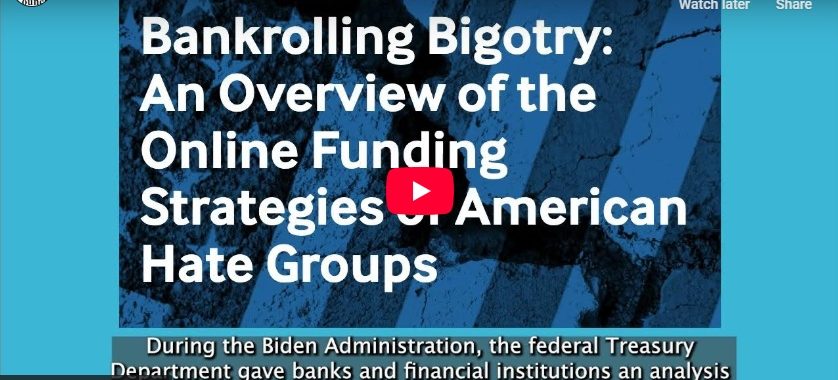Alliance Defending Freedom attorney Jeremy Tedesco recently took to social media to explain that debanking is not “rare” in America.
His comments come as Reuters and other media outlets seem to be trying to whitewash debanking or dismiss it altogether.
Since 2021, congressional testimony and news stories have highlighted how federal officials and financial institutions targeted conservative organizations through “reputational risk” policies. Conservatives deemed “high risk” could have their bank accounts closed without warning and without explanation.
During the Biden Administration, the federal Treasury Department gave banks and financial institutions an analysis titled “Bankrolling Bigotry” that listed legitimate, conservative groups such as Alliance Defending Freedom, the American College of Pediatricians, American Family Association, Eagle Forum, Family Research Council, Liberty Counsel, National Organization for Marriage, and the Ruth Institute as “Hate Groups” alongside the KKK and the American Nazi Party.
The “Bankrolling Bigotry” analysis also outlines ideas on policies and laws aimed at preventing these groups from fundraising. Officials from the Treasury Department distributed this document to banks and financial institutions in January of 2021, calling it an “overview on the funding of American hate groups.”
We also now know the U.S. Treasury Department gave banks and other financial institutions guiding “typologies” — patterns they could use to identify suspicious people or activities — the included search terms and patterns like “TRUMP” and “MAGA.”
The department encouraged financial institutions to comb through transactions for terms like, “Bass Pro Shops,” “Cabela’s,” and “Dick’s Sporting Goods” when looking for “Homegrown Violent Extremism.”
These problems went largely unreported until congress began asking serious questions about debanking.
But as of today, corporate shareholders, state attorneys general, congressmen, federal investigators, and news outlets all have expressed concerns over conservatives being wrongly labeled as “high risk” or “hate groups” and subsequently debanked.
Jeremy Tedesco is an attorney who serves as Alliance Defending Freedom’s Senior Counsel and Senior Vice President of Corporate Engagement. In a statement issued on X, Tedesco called debanking a “silenced” problem, writing,
Debanking is severely under-reported. Most victims I’ve spoken to won’t go public—fear of the stigma and of losing access to their money is that real. . . .The corporate media’s framing of debanking as “rare” is wrong and misleading. Victims rarely file formal complaints—most are too afraid of being shut out completely.
We can say from experience that Mr. Tedesco is exactly right.
In 2021 Family Council’s credit card processor terminated our account after designating our organization as “high risk.”
At 10:29 AM on Wednesday, July 7, 2021, our office received a terse email from our credit card processor — a company owned by JPMorgan Chase — saying, “Unfortunately, we can no longer support your business. We wish you all the luck in the future, and hope that you find a processor that better fits your payment processing needs.”
Within sixty seconds, our account was terminated and and Family Council could no longer accept donations online. The company never explained why were labeled “high risk.” All we could do was speculate that our conservative principles and our public policy work might have had something to do with the decision.
Filing a consumer complaint or going to court seemed pointless at the time, because the processor’s Terms of Service said it could terminate our account for any reason or no reason at all. Apparently that’s what they decided to do to us.
In 2022, Chase abruptly closed the account of Ambassador Sam Brownback’s National Committee for Religious Freedom with little warning or explanation, and PayPal similarly disabled the account of a group called the Free Speech Union.
Stories like these are part of the reason President Trump recently signed an executive order against debanking. The purpose of the order is to guarantee fair banking for all Americans.
To their credit, JPMorgan Chase has taken steps to prevent religiously-motivated debanking, and Bank of America has finally done the same. That’s a good thing.
We appreciate groups like Alliance Defending Freedom who have worked so hard to fight against debanking. After all, banks that are too big to fail are too big to discriminate.
Articles appearing on this website are written with the aid of Family Council’s researchers and writers.
READ MORE





